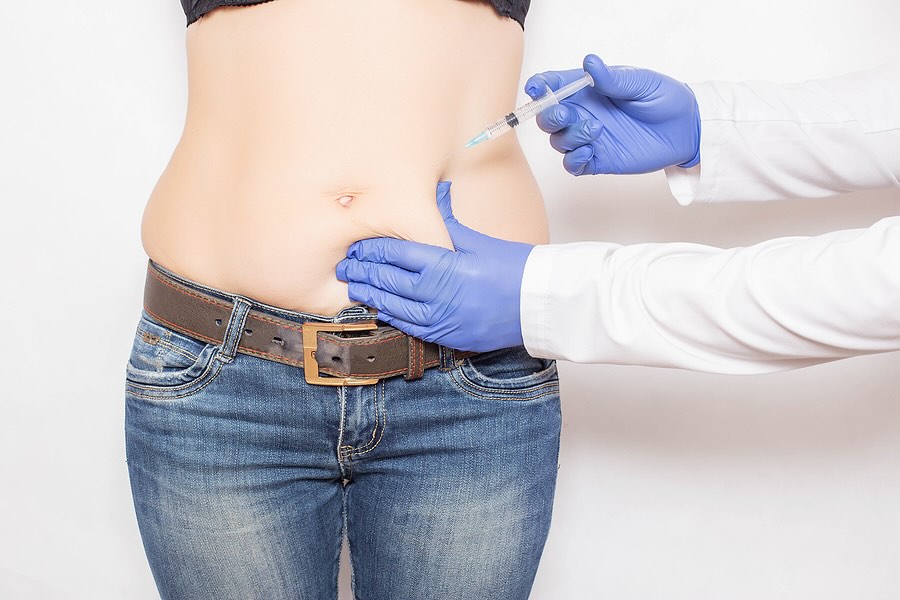Updated: Sept. 21st, 2025
- Emotional eating is an issue for most women at some point in their lives
- Food and emotions are connected by memories, often from long ago
- Societal expectations can lead to major struggles with food
- Too many women use food for control, comfort, or rewards rather than nourishment
- Emotional eating can stem from physical factors, like neurotransmitter imbalances or food sensitivities
- Antidepressants aren’t the answer; try my suggestions to conquer emotional eating
“I don’t know what else to do when I see all the horrible things happening in the world, so I eat.” That’s what Diana told me last week when she called to discuss whether my weight loss program could work for her.
She’s certainly not alone! So many women I talk to these days tell me how what’s going on in today’s world drives them to eat. They feel helpless, so they eat. They’re sad, so they eat. They’re stressed, scared, depressed, grieving, angry…so they eat.
For almost all of the women I’ve encountered in my practice and in my personal life, emotions have always played some role in their relationship with food. The pandemic only intensified that, and we’ve never fully recovered. Add to that the political unrest and increased uncertainty around what is to come, and it’s even more obvious that what we feel can impact what we eat.
Our emotions and how we eat (and when and what) are so intertwined that I think it is virtually impossible for a woman to get healthy — and, eventually, to lose weight — without first addressing her emotional attachment to food.
Though that may seem like a simple task, it rarely is. Emotions are complicated and messy, and sometimes it’s easier to push them away than to face them. Let’s explore how emotional eating may be affecting you and your relationship with food.
What is your emotional relationship with food?
I am constantly hearing stories about women’s emotional relationship to food – the good, the bad, and the ugly.
Many of my patients have fond memories from early childhood that impact how they feel about certain foods: the ice cream truck on a hot summer day, traditional holiday meals celebrated with family, the amazing dish a favorite aunt brought to the summer barbeque each year. These stories underscore how food can be used to make us feel comforted, connected and loved. In many families food is the only currency of love, a legacy many women unwittingly pass on to their own children.
But just as often, the connections are exactly the opposite. Mealtimes may have been excruciating exercises in power or parental control. How many children sit down to a meal only to hear, “I have a bone to pick with you?” How many are forced to sit at the table until they eat everything on their plate? Who wouldn’t eventually lose their appetite after being fed a regular diet of criticism and shame every evening?
And then there’s the connection between food and stressful times. Often, the first thing someone does to try and be helpful when you are undergoing an illness or other stressful event is to offer to bring you a meal. And this food, a physical reminder that someone cares, often does make you feel better. The problem is, the comfort you get from food is temporary, and the stress is still there long after the food is gone.
Stress eating is especially troublesome in times of prolonged stress. It can become a continual cycle of crash, eat, feel better, crash…on and on.
As you can see, emotions and food are intricately linked. And the connections are so rooted in history, it can be exceedingly hard to change long held habits.
The teenage experience
As women move into their adolescence, stories often morph into tales of deprivation and triumph over food, the perceived enemy. One of my patients describes how she and her friends ate one meal a day all through their senior year in high school, squeezing each other’s hands in support, so they could fit into tiny little prom dresses in June. Another remembers coming home and lambasting herself if she ate more than half a container of yogurt for lunch. Adolescence for many girls is the entry into what may become a lifetime of self-loathing, all for wanting and needing to do something that is a vital necessity — eat!
Our society has few rituals in place to make teen-aged girls feel comfortable with their emerging curves and hormonal surges. As a result, a girl’s burgeoning body, her promise of fertility and womanhood, can feel threatening—more so to herself and her parents than anyone else. And if a woman never finds a way to feel comfortable with her grown-up shape, either through romantic love or emotional work, this discomfort parlays into an ongoing struggle with food and self-esteem. Thus, habits of emotional eating can develop at any age where stress is prevalent.
When eating becomes a struggle
Eating disorders aren’t the exclusive domain of young women. In their book, Runaway Eating, Cynthia Bulik and Nadine Taylor help clarify why huge numbers of women in their 40s and early 50s now find themselves coping with midlife stress through unhealthful eating patterns, including binge eating, yo-yo dieting, calorie restriction and compulsive exercise. While a woman at this age may not consider herself anorexic because she eats regularly, her obsession with maintaining control (and not just of her food intake) can be just as destructive. Emotional attachment to ritualized denial — of food, of pleasure, of money, of rest, of sex — is anorexia in another guise. It is an effort to erase a part of yourself or your life that weakens your sense of control.
And women aren’t the only ones doing the erasing. Just look at what has happened to dress sizes in the past 40 years — for those of you who still sew, you know your pattern is really a “12” even though designers are sewing size “6” labels into your clothes these days. And what’s with size “0,” “00” and “000” anyway? Do women need to fully disappear to be truly attractive?
No woman is immune to emotional eating
At least 80% of the patients I see have some form of emotional issues with food. What I’ve learned over the years is that most of them grew up in dysfunctional families. If you recognize yourself, it may reassure you to know that you aren’t alone. You are part of a wide continuum, at either end of which lie extreme over-eaters and under-eaters. And just by reading this article, you are taking another step toward healing.
Just as age has nothing to do with an emotional attachment to food, let me assure you neither does your level of education or socioeconomic bracket. A key factor that does vary among emotional eaters is how an individual has learned to respond to stress. Some women become hyper-responsible or obsessive-compulsive, and use food as a form of control over themselves or others. Others cope by taking it all in, learning to soothe and stuff their feelings with food. In every case, though, what we’re talking about is preoccupying yourself with food to prevent yourself from feeling unwanted feelings — including but not limited to the big ones: pain, despair, grief and shame.
Food as reward, comfort or control
Many of us were rewarded with sweets for being “good” when we were young. During times of high stress, many women unconsciously mimic this reassurance by rewarding themselves with comfort food that’s filled with sugar and simple carbs. There’s a physiological pull at work here as well. Sweet treats trigger the release of serotonin, the feel-good hormone, but only temporarily. In fact, in some clinics, sugar is used to increase serotonin levels to control overeating — but don’t try this on your own!
Comfort food and junk food may help us feel good in the moment, but tend to feed a vicious cycle of guilt. The insidious part of this is that, somewhere, deep in our subconscious we are drawn to recreating these feelings of guilt and shame because they feel familiar. Familiarity doesn’t mean that ultimately they are good or healthy — only that they are a part of a pattern and serve some psychological purpose.
Most women who struggle with emotions and food actually “hunger” for deeper sustenance — a psychological yearning they feed with food. I call this your “black box.” Recognizing that you have one, and that no amount of food will fill it, is a great first step to dealing with your emotions and food. Most talk therapy is about learning to recognize this void and the subconscious patterns that keep it empty.
What I notice is that women get angry at themselves for “pigging out,” blaming food instead of the upsetting situation (or person) that triggered the emotional eating. It’s harder to control your emotions than your food, and food doesn’t talk back. Deprivation has a false appeal, too. It promises a great way to exert control over yourself and the people around you. For some women, depriving themselves of food feels very virtuous while it lasts, but often ends in binge eating.
Examine your feelings
Next time you find yourself using food as a soothing mechanism or control device, ask yourself, what set me off? What was I feeling before I ate, and how do I feel now? Identifying triggers – as well as recognizing that the food doesn’t change anything and can actually make you feel worse is an important first step. Many women don’t realize the degree to which food issues are impacting their long-term health. Finding someone to discuss this with can help you unravel and reverse these health-sabotaging behaviors.
The Physical Downside to Emotional Eating
Emotional eating often has undiagnosed, but very real, physical underpinnings. Hormonal and neurotransmitter imbalance can spark insatiable cravings that contribute to overeating. A range of tests are now available to help us diagnose neurochemical imbalance. I’ve had good success in treating these patients with targeted support in the form of amino acids, vitamins and mineral cofactors.
Food sensitivities can also be entwined with food addiction: we crave the foods we are sensitive to because we’ve grown used to the abnormal biochemical state those foods produce.
You don’t need a lab test to find out whether you have food sensitivity. Just stop eating that one food for five to seven days, then reintroduce it and track how you feel before and after.
Once your body grows accustomed to behaving in a certain way, it tends to want to stay there, even if it’s not the healthiest place to be. In fact, if you can’t stop eating, it may be a sign that your body is inadequately absorbing your nutrients — which is a form of starvation!
Chronic overeating, anorexia, and bingeing/purging are specific conditions that usually require professional assistance and are best treated in a holistic manner. Finding a therapist or support group is a great way to start. Enlist the help of your healthcare practitioner as well — that way you can tackle your issues on all fronts. If your eating patterns lie at the extremes of the emotional eating spectrum, don’t wait to get help — your health depends on it.
Alternatives to medication
There are many alternatives to antidepressant and anxiolytic (anti-anxiety) medication to help you get a handle on disordered eating behavior. The key is finding what works for you. You may find that following a specific plan helps you to develop the mindfulness you need to break old patterns, for example:
- Some of my patients have had good success with Overeaters Anonymous (OA). It’s a great forum for learning about your personal issues, but understand that this is a program that requires portion control. Some people prefer Food Addicts Anonymous (FAA), but again, this program uses a structured food plan.
- Geneen Roth, author of Feeding the Hungry Heart and When Food Is Love, runs workshops around the country specifically designed to help people with eating disorders and other food-related issues.
- Emotional Freedom Techniques are another method shown to be very helpful for eating disorders. The basics of this technique are simple, effective, and can be applied by anyone.
- My weight loss program is a comprehensive lifestyle program that addresses all aspects of weight loss, including emotional eating. It’s a personalized approach that helps you identify what might be behind your eating habits, and how you can begin to shift these towards more positive behaviors that work for you.
Be Gentle with Yourself
I said it before, and I’ll say it again: If you recognize emotional eating as a pattern for yourself, you are not alone. These days, more women than ever are telling me that emotions are impacting their food choices.The important thing to realize is that many of these adverse patterns are set in childhood and can be very difficult to break without help.
I encourage you to remember that we humans are adaptive creatures: just as we learn negative coping mechanisms, we can unlearn them — it just takes more mindfulness. To really overcome eating issues like emotional eating we must support our whole selves – body and mind – and the underlying reasons for our behavior. Regardless of your emotional history or your biochemistry, recognizing the patterns and reaching out to someone you trust is the first step toward letting go of the past and learning to care for yourself in the way you deserve.
Building and maintaining healthy habits is a lifelong endeavor. You can’t fully embrace a long-term approach to weight loss and good health without doing the important emotional work. And when you do, you’ll likely find you feel better than you ever have — physically and emotionally!








